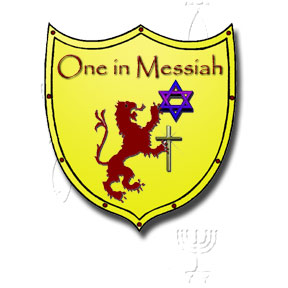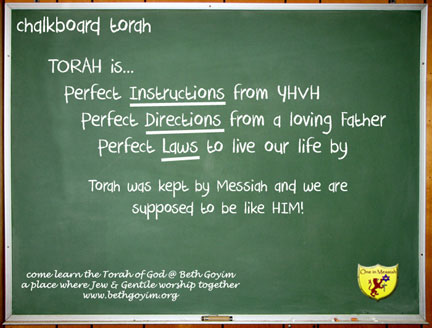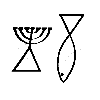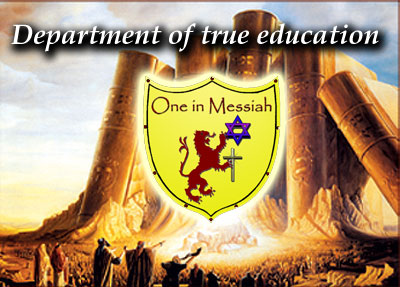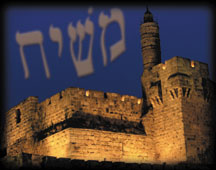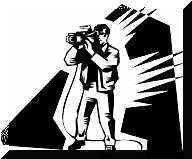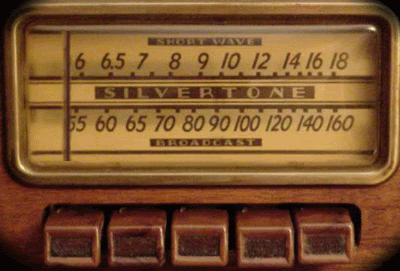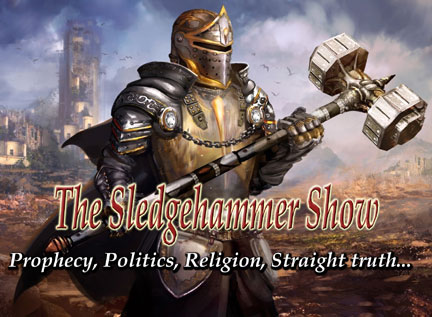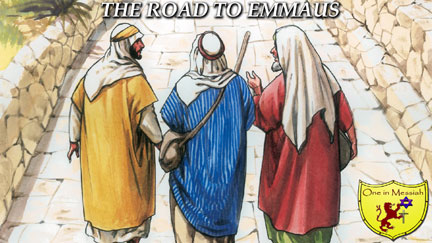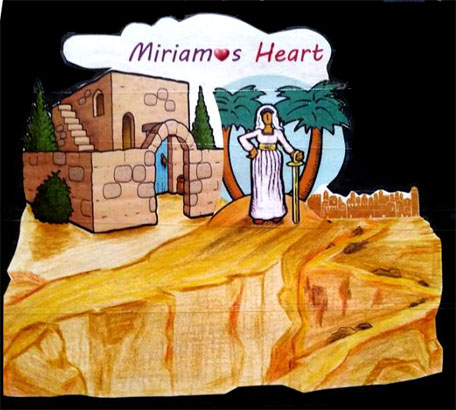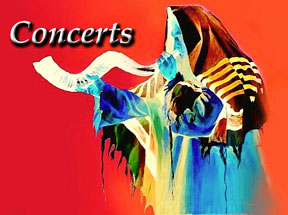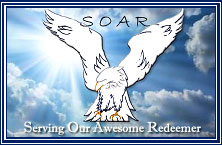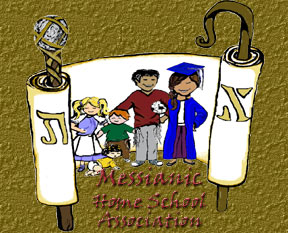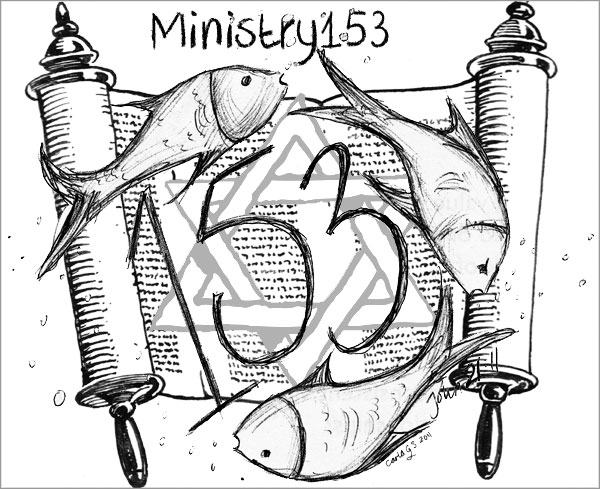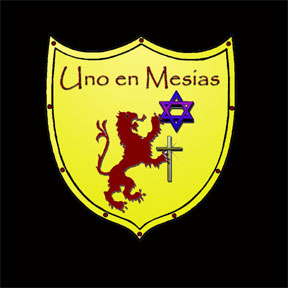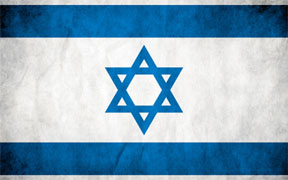Statement of Faith for Beth Goyim Messianic Congregation
Isa 55:8 "For my thoughts are not your thoughts, and your ways are
not my ways," says YEHOVAH.
Isa 55:9 "As high as the sky is above the earth are my ways higher
than your ways, and my thoughts than your thoughts.
YEHOVAH’s ways are PERFECT. All of His Word is Perfect. From
B’resheet/Genesis thru Revelation. It is our blessing to know what
He thinks is perfect. It is our joy to strive although never perfect
to follow all His Mitzvoh/Commandments.
Mat 5:17 "Don't think that I have come to abolish the Torah or the
Prophets. I have come not to abolish but to complete.
Mat 5:18 Yes indeed! I tell you that until heaven and earth pass
away, not so much as a yud (
י
) or a stroke will pass from the Torah — not until everything that
must happen has happened.
Mat 5:19 So whoever disobeys the least of these mitzvot and teaches
others to do so will be called the least in the Kingdom of Heaven.
But whoever obeys them and so teaches will be called great in the
Kingdom of Heaven.
What is the TORAH? To us at BGMC it is YEHOVAH’s “God” marriage
contract to all of us His people. Both Hebrew “Jew” and Gentile “The
Nations”. They are not Mitzvoh’s Commandments but Commitments. He
was gracious enough to write down these simple commitments for us to
follow. We at BGMC think of these commitments like a marriage
contract. When a man and woman get married they make a commitment to
YEHOVAH and to one another. They do this in front of His eyes and
the family. We are blessed and honored to be able to have the
opportunity to have this perfection.
To be Torah observant means we do not follow the Jewish
rabbi’s, but YEHOVAH. For how can we say to our Gentile brethren
that you need to stop following pagan ways if we ourselves keep
following them. We follow the "Route 66" Kings High Way. That means
from B'resheet/Genesis to Revelation. We do not follow Talmud, The
Pope's writings, Luther or any other man made writings. These have
errors in them and were not written by YEHOVAH. Our Motto is “Just
Do It”. When you see Yeshua/Jesus doing something in the Scriptures
as an example, then you, as His child, should do it too. If He did
not do it, or speak about it, it is a tradition of man and we do not
follow those traditions. Those traditions of men have led, and still
lead people away from Messiah Yeshua and to the adversary satan.
That we might have unity among us, and that we all speak the same
thing as regards the foundation of our faith, and that with
integrity we present our witness of Yeshua (Jesus) the Messiah as
those who walk in His light, (I Corinthians 1:10 & Acts 2:42) let it
be hereby established that we believe....
1. All Scripture (Tanach - Torah, Prophets, Writings)
which is completed in the Ketuvei HaShalichim (the Apostolic
Writings, commonly known as the New Testament) is given by the
Breath/Spirit of Elohim [GOD], and is to be used for doctrine, for
reproof, for correction and for instruction in righteousness. (II
Timothy 3:15-17, I Thessalonians 2:13, II Peter 1:21)
2. Hear, O Israel: YHVH [the LORD, the Most High] is
our Elohim. He is One. He alone is YEHOVAH (Deuteronomy 6:4 & Isaiah
43:10-11). He is the Creator of heaven and earth, of all living
beings, and of everything both visible and invisible (Genesis 1:1,
Colossians 1:15-17). Although He is limitless in power, authority,
time, matter, and space, He has chosen, in His infinite wisdom, to
reveal His nature to humanity in perceivable and comprehendible
manners. Scripture records GOD revealing Himself in the following
manners: as fire (covenant with Avraham between the two halves of
the cow; Genesis 15:17), as the form of a man not born of a woman,
(when He approached Avraham with the two angels; Genesis 18), as a
burning bush (spoke to Moshe; Exodus 3:2), as the fourth Man in the
furnace, (Daniel 3:25), as the promised Messiah being a Man made of
flesh and born of a woman (Isaiah 7:14, Galatians 4:4). Although
there are numerous examples of GOD revealing Himself to humanity in
various ways and forms, of those ways and forms, He has chosen to
refer to Himself in the following primary contexts: as the Father (HaAv),
as the Son (HaBen) Yeshua, and as the Ruach HaKodesh (Holy
Spirit/Breath). What makes these primary contexts important is not
only the fact that God used these forms to reveal Himself to
humanity, but in doing so, He refers to Himself in these primary
contexts as the one and only true and living GOD.
3. YEHOVAH and His Word are eternal. That is: He, His
Word and His Will has always been, and will always be, the same.
(Malachi 3:6, Hebrews 13:8 & Matthew 5:18; 24:35)
4. The Shabbat [Sabbath], the seventh day of the week,
is the created holy day of YEHOVAH, which He gave to mankind and
covenanted with His people as a sign forever. (Exodus 31:16, Genesis
2:2-3, Isaiah 58:13-14 & Matthew 12:8)
5. Yeshua of Natzeret (Jesus) is the Messiah of
Israel, the Savior of the world, the King of kings and Lord of
lords. He is YEHOVAH who appeared among mankind in the flesh, and
now is glorified with all power in Heaven and in Earth, at the right
hand of Abba. (John 1:12-14, Acts 7:55-56 & Hebrews 10:12)
6. Messiah Yeshua is the ultimate and final sacrifice
required for the removal of sins. He was born of a virgin, was
sinless and performed miracles. He died by execution stake (stagion)
on a tree (xulon) an atoning death and rose from the dead three days
afterward. Everyone who believes the above, repents of their sins
and trusts that Yeshua is the Messiah, are forgiven their sins and
come into a renewed covenant with YEHOVAH through Him. Therefore
they become inheritors of all the promises YEHOVAH made with Abraham
and Israel. (John 1:29, Isaiah 7:14;9:6-7, Matthew 1, Hebrews 4:15;
2:4, Leviticus 17:11, Isaiah 53, Psalms 22, Romans 5:6-11, Ephesians
2:8, Matthew 27:50-28:20, Romans 10:9-12 & I Corinthians 5-7)
7. The Ketuvei HaShalichim [the Apostolic Writings,
commonly known as the New Testament] in Messiah Yeshua brings with
it a new creation of the human spirit. The Torah
[Law/Teachings/Instructions] of YEHOVAH is planted inside so the
Ruach HaKodesh may indwell. An external immersion in water (mikveh)
is performed to declare that this has taken place. (Jeremiah
31:31-34, Ezekiel 36:26-27; 39:29, Matthew 3:16; 28:18-20 & Acts
2:38)
8. The various enablements or gifts of the Ruach
HaKodesh are given with authority to all those who ask YEHOVAH and
obey His commandments. The Promise of Abba, an extra enduement of
power and boldness for witnessing, is an immersion (spiritual mikveh)
by the Ruach HaKodesh. Each follower should seek to be filled with
the various enablements of the Ruach, who gives them as He wishes.
(Joel 2:27-29, Isaiah 28:11-12, Luke 11:13, Acts 1:4-5; 2:4; 5:32;
10:44-48, I Corinthians 12:1-13 & Ephesians 1:13)
9. The people of YEHOVAH are a holy Miqra Qahal
[Called Out/Ekklesia] congregation, which is not of this world, in
order to gather and celebrate Him at His appointed holy Feasts, to
shine as lights of truth in the darkness and to be a royal
priesthood which praises His Name. (Leviticus 23, Matthew 16:18)
10. The goals of the people of YEHOVAH are:
* a.) To be followers of Yeshua the Messiah, until we mature into
the example He left us and to know Him. (Ephesians 4:13 & Matthew
7:20-27)
* b.) To be holy and separate from the world as our Abba is holy.
Therefore, we are to learn and act on those things which makes us
holy in His sight. (Leviticus 11:44-45 & Ephesians 5:27)
* c.) To be righteous (right decision making) and Godly (forgiving
in this world). (Titus 2:12)
* d.) To be clean, first in our conscious inner man, and also in our
outward walk accordingly as we grow in the Ruach [Spirit] and
understanding of the Word. (Psalm 51:10 & 1 Thessalonians 4:7)
* e.) To be full of love for one another, thus proving we are
Yeshua's disciples; and caring for a lost world, to take the message
of the Good News of Yeshua to the Jew first and also to the Gentile.
(John 13:34-35, Romans 1:16 & 1 John 4:7-8)
11. The promise of a continually faithful trust in
Yeshua, while walking according to the will of YEHOVAH, is
resurrection from the dead, eternal life and ruling with Yeshua
forever in the place where His Kingdom will rule. He will yet rule
in Jerusalem/Zion, and finally in the New Jerusalem in the New
Creation forever. (Job 19:25-27, 1 Thessalonians 4:13-18 &
Revelation 19-22)
12. Yeshua will judge all mankind of every act and
word ever committed. He will decide the sentence for punishment, and
all those not meeting His standards will be sent away from His
presence, into outer darkness and eternal punishment for the sin.
(Daniel 12:2, Matthew 25:31-46 & Revelation 20)
13. The final plan for the Israel of YEHOVAH is to
bring the remnant of the faithful Jewish people, and the remnant of
those believers who were formerly Gentiles, but recovered from the
world by faith, back together and united into one holy people under
one Shepherd, namely Yeshua, the Messiah, This will complete the
tearing down of the wall of partition, which is a necessary part of
the restoration of all things spoken by the prophets. (Isaiah 56:8,
Hosea 1-2, John 10:16, Romans 9:26 & Acts 3:21)
14. Jews according to the flesh (descendants of
Abraham through Isaac, whether through the bloodline of the mother
or the father) who place their faith in Israel's Messiah Yeshua have
not disowned or separated themselves from their race and Judaic
heritage, but remain sons and daughters of Israel. Thus should
celebrate their heritage and traditions. Gentiles who place their
faith in Israel's Messiah Yeshua are also spiritually sons and
daughters of Israel and thus also share in this rich and meaningful
heritage. (Romans 2:28-29, Acts 21:17-26, Galatians 3:28-29 &
Deuteronomy 28)
15. The m'chitza (wall of partition) which in times
past separated Jews and Gentiles has been broken down; the enmity
between them eradicated by the Messiah Yeshua (Ephesians 2:12-14)
16. The Renewed Covenant body of YEHOVAH is composed
of both Jews and Gentiles who have accepted Israel's Messiah Yeshua
as the promised Redeemer and that now they are to worship together
in the House of Elohim. (John 10:16, I Corinthians 12:13, & Hebrews
10:25)
17. It is our prayer that YEHOVAH will bring back the
church to an understanding of its Jewish heritage and roots so that
both Jew and Gentile may know the spiritual reality of being one in
the Messiah Yeshua.
Points of Order
1. THE HOLY NAME:
The reading or aloud mention of "YHVH" (Yod-Hey-Vav-Hey) may be
spoken as "the I AM" in English or as "YEHOVAH" (the Name) in
Hebrew. "YEHOVAH", "the Most High", or "Avinu (Our Father)" may also
be substituted as referring to the Holy Name. Messiah said to say "Avinu
(Our Father)." As an organization, we allow the option of the use of
YHVH in the Aaronic Benediction (B'midbar/Numbers 6: 24-26) because
we read in B'midbar/Numbers 6:27: "In this way they are to put My
Name on the people of Isra'el, so that I will bless them", but
strongly discourage any use of the Name that would make it common or
profane.
2. MESSIAH'S NAME:
The name of our Messiah was and is Yeshua or Y'shua meaning both
"salvation" and "Yah who is salvation" in Hebrew. The term "Yahshuah"
is not correct Hebrew pronunciation. As a proper honor, He is to be
referred to as "Messiah Yeshua," "Yeshua the Messiah" or "YEHOVAH
Yeshua" rather than "Yeshua" alone.
3. NAME AS AUTHORITY:
The idea of '"name" in Hebrew is that of "authority" without
referring to the sound of the syllables. Use of a name means use of
the authority behind the name. Therefore, it is more important to
know by what authority something is done, rather than the spoken
syllables. When Messiah said He came in His Father's Name, He was
referring to the Father's Authority, not the syllables of the Holy
Name.
4. THE TORAH:
The Torah may refer to either the Five Books of Moses, the entire
Tanakh (Hebrew Scriptures) or the whole Bible, depending on usage.
The Torah in our usage never refers to the Talmud but, while we do
not consider the Talmud or any other commentary on the Scriptures as
the Word of YEHOVAH. We do not practice in the Diaspora those parts
of Torah which require residence in the land, a theocratic civil
government and/or a consecrated Temple on Mount Moriah.
5. LEADERSHIP & GENDER:
Recognizing that the Scriptures state that under the Renewed
Covenant there is an equality of men and women, recognizing the need
for unity in the body, and recognizing that there are differing
perspectives on the Scriptural regulations on women in ministry. As
YEHOVAH does not allow a woman to show authority over men, we abide
in His perfect ways and agree to His ways 1Tim 2:11-12. There are
roles for each - men and women - to follow. Only men are to teach
the Scriptures to men and this should be taken as a great honor and
not to be taken lightly for this is YEHOVAH's order. Conversely only
women can have babies and the incredibly joy of bringing life into
this world and this should be taken as a great honor and not to be
taken lightly for this is YEHOVAH's order. Women can teach other
women and children up to the age of 20 for a male. ALL are called to
be witnesses for Yeshua, but not all are called by YEHOVAH to be
rabbis or pastors only men. YEHOVAH called Aharon and his sons not
daughters. Exo 27:21
Aharon and his sons are to put it in the tent of meeting...
Women
Pastors?
6. THE TALLIT:
according to Torah, B'midbar 15:37-41 and D'varim 22:12 men are
commanded to wear the "tzitzit" with "techelet" (blue thread). This
is to be done with proper respect and care. We are to wear them to
remind us of HIS Torah. They should be worn at all times preferably
attached to a tallit katan or tallit gadol, but tzitzit attached to
belt loops is not acceptable since it shows a disrespect to this
Torah command. At Shabbat services and on the moedim, the
traditional Tallit should be worn by men. Women may wear a type
pastel colored Tallit that is not mistaken for a man's Talit.
